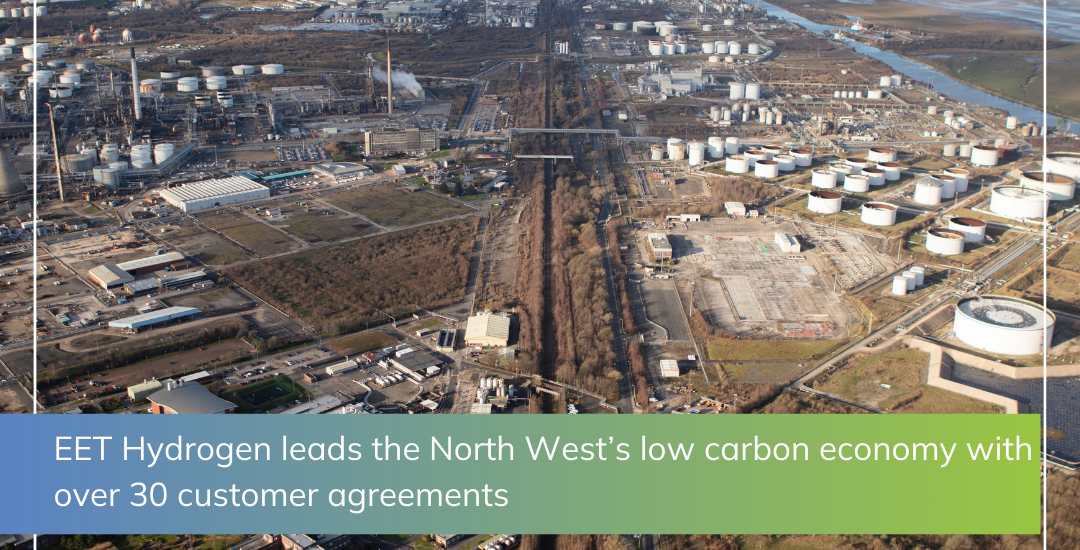
News & Press Releases

EET Hydrogen leads the North West’s low carbon economy with over 30 customer agreements
EET Hydrogen is unlocking the next era of economic growth in the North West, securing agreements to supply over 30 businesses across industrial, power, and transport sectors with locally produced low carbon hydrogen.
With 10 new Memoranda of Understanding (MoU) agreements signed in recent months, the continued demand signals a major boost for the region’s low carbon economy. Switching to low carbon hydrogen will create jobs, attract investment and strengthen the North West’s position as a leading low carbon energy hub.
The production of reliable, low carbon hydrogen at scale enables industry to future-proof their operations. Low carbon hydrogen, produced at EET Hydrogen’s second hydrogen production plant (HPP2), will help nationally important industry to grow through the securing of vital investment and jobs in the UK’s leading manufacturing region.
The customers span ten vital sectors from chemicals, glass, power, automotive, construction, refining, aerospace, food & beverage, pharmaceuticals and ground transport. Some of these agreements are with businesses looking to deliver new investment in hydrogen fuelled plants in the region.
Marta Csibra, Head of Strategy and Business Development at EET Hydrogen, said: “The North West hosts approximately 340,000 industrial jobs supplying vital products and services across the UK, and beyond. Industry needs to transition to flourish in a low carbon future and EET Hydrogen is committed to enabling decarbonisation, rather than deindustrialisation.
The signed MoUs reflect a total demand of ~29 TWh/year, equivalent to a hydrogen production capacity of ~3.3GW; demonstrating the substantial growth and decarbonisation opportunity from hydrogen; within HyNet and beyond.”
HPP2 will be co-located with HPP1 at the Stanlow Manufacturing Complex with a proposed production capacity of up to 1000 MW, enough energy to power a city like Liverpool, capturing up to 1.8 million tonnes of CO2 per year (the equivalent of taking around 700,000 cars off the road). HPP2 is currently in the Government’s Track 1 Expansion process for HyNet.




 Careers
Careers Back to Media
Back to Media